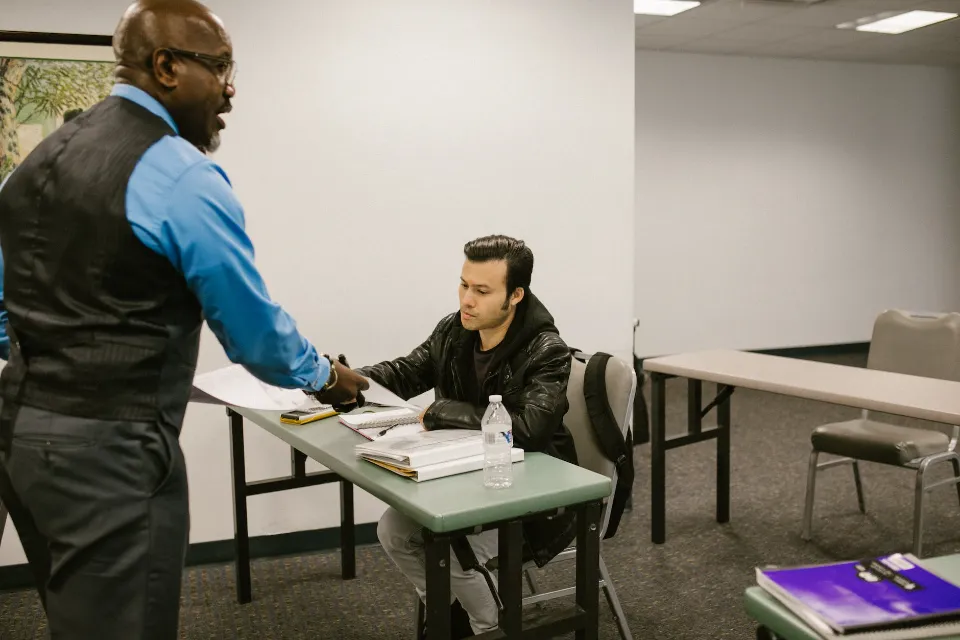
How to Get Good Grades in College? 18 Tips
Here is a list of eighteen tips to help you improve your college grades. Actually, mastering superior study techniques is the key to achieving excellent grades.
Your college grades will affect your prospects for future employment and will matter even more if you are trying to get into a competitive graduate program. How do you then achieve those high grades?
The real key to achieving academic success at college or university is a combination of working hard and working smart. Getting good grades will be a natural outcome of this but you’ll have to focus on the process.
We have talked about How to Get Good Grades in Middle School. If you’re willing to work hard, that’s already half the battle won. In order to work smarter in college, here are eighteen tips.
Attend Class Regularly
If you want to raise your grade point average, attending class is the obvious first step. Attendance and test results were found to be directly correlated in a recent study of first-year college students.
Additionally, since attendance may be taken into account when determining the final grade in some courses, skipping class may result in a grade reduction.
Review the Syllabus
Many students barely glance at the class syllabus. However, there is a wealth of knowledge in the syllabus that can help you get a better grade.

For instance, a lot of professors publish their grading guidelines, which often include the final grade breakdown. By reading the syllabus, students can see how professors weigh test scores, papers, participation, and other assignments so they can know where to focus their energy.
The syllabus may also include information about due dates, late fees, and other grading guidelines. Students can improve their grades just by being aware of the situations where they could lose points—for submitting a paper late, for instance.
Take Good Notes
Keeping notes can aid in memory retention and test preparation. But taking good notes is a skill that many college students find difficult. Actually, there isn’t a single best way to take notes. Instead, students should experiment with different note-taking methods to find what works best for them.
While some students prefer to take notes by hand, others find that typing their notes is beneficial. Take notes not only during lectures but also during class discussions, during meetings with your instructor, and while reading class assignments.
Go to Office Hours
Professors offer office hours so that students can ask questions and get assistance with the course material. Many pupils, however, never show up for these drop-in sessions. A quick trip could provide you with important information and improve your grade.
Researchers looked into the connection between office hour attendance and academic achievement over a four-year period. It turns out that students who come to office hours perform better in class.
Attend a professor’s office hours early in the term to introduce yourself or visit before a test to review concepts. There’s a good chance the visit could help improve your grades.
Think Strategically About Pass/Fail Classes

The pass/fail grading scheme can also assist in raising your GPA. In a pass/fail class, students who pass the class receive a “P” on their transcript instead of a letter grade. A P has no effect whatsoever on your GPA, whereas a low grade might.
The pass/fail policies that each school upholds are unique. Some schools forbid students from enrolling in general education, major, or upper-division courses. Before enrolling in classes, be sure to read the policies.
Retake Courses With Low Grades
Many schools allow students to take classes again that they failed or got a bad grade in. Depending on college policies, they can replace the low grade with a higher grade, which boosts their GPA.
Like pass/fail classes, make sure to review policies on retaking courses. Some colleges replace the lower grade with the higher one, while others list both grades instead.
Last but not least, students have the right to appeal grades if they believe the professor made a mistake, arbitrarily assigned grades, or was motivated by discrimination when grading. However, it’s simpler to improve your grade in class than it is to do so after the fact. A long-term investment in good study habits can be made.
Master Your Professors
- Make sure you get to know your professors and that they get to know you. They will have a better chance to comprehend your advantages and disadvantages.
- Let them know when you are struggling. To assist you, they are there.
- Recognize the demands of your course. Don’t be afraid to ask your professor to clarify anything if you have any questions.
Stay Organized

The key to learning how to get even better grades is organization.
- Use a planner or calendar and make sure that you are up to date with all of your deadlines
- Create a designated workspace with good lighting and a comfortable chair
- Declutter your desk
- Schedule blocks of time for learning
- Organize your digital files in named folders for ease of access
- Possess stationery at all times. Make sure that you have pens, highlighters, eraser, sharpener, notebooks, flashcards, and colored markers
Learning in Groups
Study groups are a great resource. You can improve your understanding of the subject matter by discussing and exchanging knowledge with others. Naturally, you want to be sure that the people you study with are dedicated to getting good grades as well.
Setting clear objectives, a specific time and place, and deciding how you will study are all crucial to the success of a study group.
Practice
The best way to gauge and solidify your understanding of a subject is through practice. Most courses offer problem sets and practice exams aside from your assignments. Utilize those. The more you practice the better.
If you can’t solve practice problems or don’t know where you went wrong, use the opportunity to learn from your study group and get help from your peers. You could also try using study tools that can offer encouragement and clarification from qualified teachers to aid in your progress.
Free Resources

All the information you require may be found on one of the billions of web pages on the Internet. You can easily find information online if you need assistance with any subject by conducting a simple search, but you’ll need to weed out the information that is actually helpful.
You can find excellent educational videos on a variety of topics on websites like Khan Academy.
Ask for Help
Asking for assistance is often viewed negatively by students. But being strong enough to ask for assistance! It demonstrates your maturity, self-awareness, and ability to spot issues before they become bigger.
Speak to your professors if you are having issues with your schoolwork or a personal issue. They are there to assist you with all of your needs.
Study Tools
Additionally, there are a ton of online study resources available. Wize is the solution you’re looking for if you want a course-specific prep course that you can complete at your own pace.
Most high schools, colleges, and universities in North America are represented in our courses, which are taught by qualified instructors (all hold master’s or doctoral degrees). degrees). You can access our course materials on-demand, 24 hours a day, for $14.95 a month.
Meet With Faculty and Advisers
Students are advised to take advantage of faculty office hours because they are there for a reason.
To connect with campus resources and choose classes, students should seek out academic advisors. By helping them set reasonable course loads and expectations, advisors can assist students in staying on track to graduate.
Join Review Sessions

Review sessions can aid in test preparation for students. They may even offer advice on the subject matter that will be covered in your exam. Prior to the midterm or final, many professors hold review sessions to go over the material and field questions. Before the review session, you should schedule some time for studying so that you can prepare your questions.
If your class doesn’t offer a review session, consider forming a study group and holding your own review session.
Take Advantage of Extra Credit
Students can earn extra credit to increase their grades or make up for lost points. Many professors offer additional credit in the form of extra credit questions on quizzes, additional assignments, papers, or attendance at an event. Take advantage of chances to earn bonus points.
Take Regular Breaks
You must frequently take breaks while studying if you want to maximize your learning.
Every 30 to 60 minutes, set an alarm and get up, shut your laptop and books, and spend 5 to 10 minutes outside. Do anything to divert your attention from your studies so that you can return to them feeling reenergized and renewed.
Sleep
It is common knowledge that getting too little sleep is bad for your health. It produces lethargy, lack of concentration, and “brain fog,” a form of mental clouding.
However, studies have shown that getting a good night’s sleep is extremely helpful for learning and memory in addition to being important for health and general well-being. Contrary to popular belief, our brain does not rest while we sleep.
According to research, our brain mechanisms are active while we sleep, transferring memories to the brain’s more permanent regions to help them become more permanent.
Conclusion: Get Good Grades in College
You will undoubtedly see a significant improvement in your subsequent test scores if you adhere to these eighteen pieces of advice on how to get good grades.
So remember, at college, you can work hard but also make sure you’re working smart by staying organized, studying effectively, and using the resources around you to support you in getting the best grades you can!
FAQs
Is 80% a Good Grade in College?
B – is still a pretty good grade! With a grade that falls between 80% and 89% C, this score is above average. A range of 70% to 79% applies to C.
Is 70% in College Good?
Yes, a 70 score is passing. It usually corresponds to a c or c- depending on the evaluation standards.
What is a Failing Grade in College?
To pass a class, you typically need to get a letter grade between A and D, which is frequently the numerical equivalent of 65 percent or higher. Receiving an F—which stands for “fail”—indicates that you did not pass the class. Usually, a score of 64 percent is required to receive an F.


